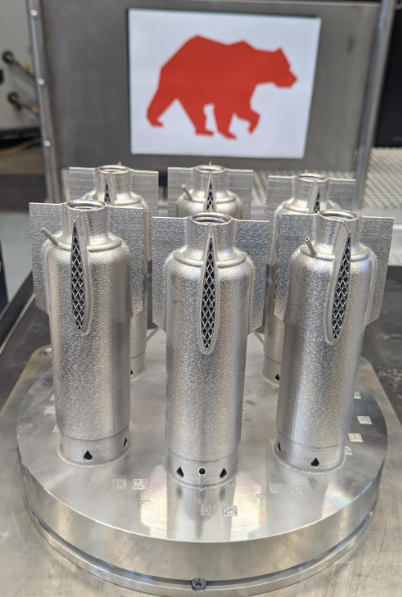Space propulsion startup Ursa Major is getting into the solid rocket motor game.
The company, which is best known for its hypersonic tech and rocket engines, today announced Lynx, its new take on producing solid rocket motors quicker and more flexibly than the traditional industrial base.
“We’ve really been looking at the solid rocket motor space for about two years now,” founder and CEO Joe Laurienti told Payload. “We got a demand signal…[in] summer 2021. DoD kind of said, we’ve gotten to know you. You’ve had some great work on the hypersonics and space fronts. What do you think about the solid rocket motor space?”
Why SRMs? Ursa Major saw the need in the broader industrial base to be able to manufacture more solid rocket motors, or SRMs, to both equip allies and maintain a large enough US stockpile to deter adversaries, such as China.
Laurienti said Ursa Major is approaching this in a different way by building SRMs quickly in a factory that can be easily reconfigured to work on different types of motors.
Lynx 101: Lynx is the manufacturing process Ursa Major is using rather than an individual motor (though Laurienti said the company expects to announce its first Lynx product by the end of the year.) It will use additive manufacturing to speed up production to the point where, for some smaller SRMs, a single 3D printer will be able to pump out 1,650 motors per year.
“3D printing allows us to take a 30-piece, 10-step process to two or three pieces and four steps,” he said.
Additive manufacturing also boosts flexibility to build multiple platforms from Stinger, to Javelin, to a man-portable air-defense system on a single machine in quick succession,” Laurienti said.
Back to space: Lynx doesn’t mean Ursa Major is done with space or hypersonics. Laurienti said the company will continue to do both, and even noted that some lessons learned on both the rigorous qualifications process and streamlined production line required for building SRMs could help the company’s space pursuits.




